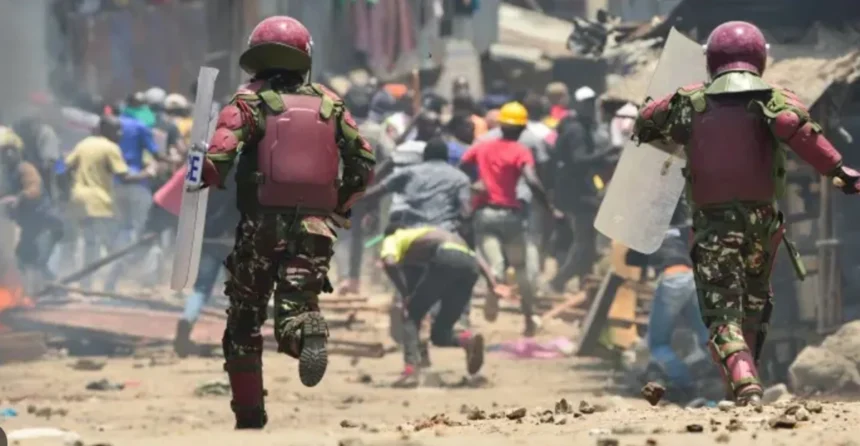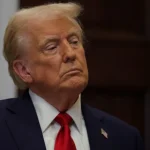These victims, many still hospitalized at the Kenyatta National Referral Hospital, remain in a state of limbo — physically healing, yet with no clear path to justice or accountability.
Among them is Maxwell Otieno Odero, who suffered a devastating injury when a tear gas canister exploded in his hand. His case is particularly severe: in an effort to regenerate tissue, doctors performed an uncommon surgical procedure attaching his injured arm to his leg.
“Mkono imeunganishwa na mguu,” he says in Kiswahili, explaining how surgeons fused the arm to the leg temporarily due to extensive tissue loss.
Maxwell was injured during the protests near the Archives on Moi Avenue, and later arrested in Dagoretti before being released and subsequently shot twice in the leg. His case reflects the harsh reality many protesters have faced — from arrests to life-altering injuries.
Other victims include Eddleton Mburu, Kevin Mwangi, Allan Chege, Denis Keiro, and Daniel Murigi — each from different counties, yet united by similar stories of pain and unanswered questions.
Kelvin Mwangi, transferred from Othaya, Nyeri County, was shot during the June 25 protests. Daniel Murigi was hit by three bullets. He says he was never shown the bullets removed from his body: “Nilipigwa risasi tatu… lakini picha za X-ray zilionyesha risasi mbili, na waliniambia zimepotea.”
This concern is echoed by many of the victims, who claim they have not been informed about the whereabouts of bullets removed during surgeries. Their families are equally distraught, demanding answers from hospital officials and relevant authorities.
Leah Mburu, mother to Eddleton, expressed her frustration:
“Nobody is ready to answer me — not a single doctor, not anyone in authority. All they’ve written in the files is ‘mandamano’ (protest). But the bullets? We haven’t seen them, and no one will say who shot them.”
Civil society organizations and activists have also raised the alarm over the lack of follow-up by oversight bodies.
Salima Njoki Macharia of Inuka Kenya Ni Sisi questioned the government’s commitment to justice:
“When they talk about compensation, what are they offering to cushion the victims from mental distress? Money alone is not enough.”
Sophie Njehis, an activist with the Gen Z Revolutionary Movement, criticized the Independent Policing Oversight Authority (IPOA) for its inaction:
“No IPOA officer has ever come to this hospital to follow up. They say they’re investigating, but how can you investigate without involving the victims?”



